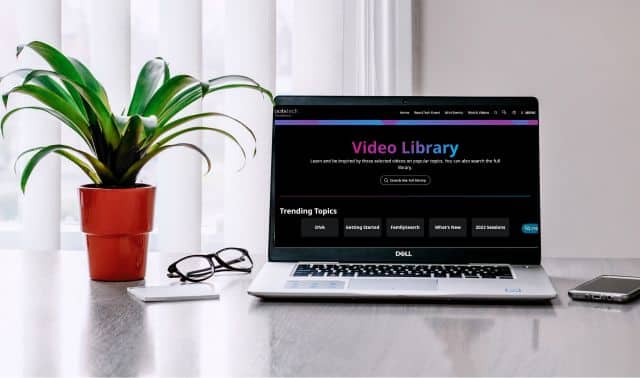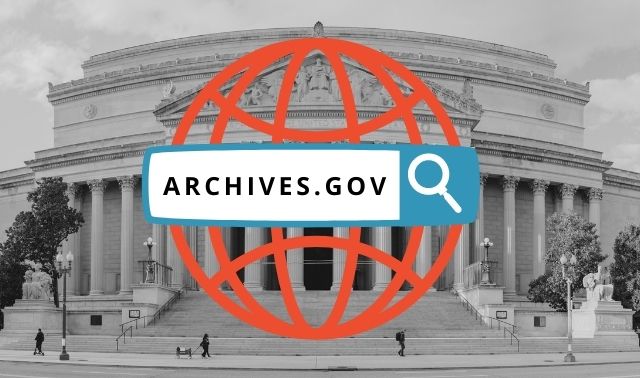You’ve heard of the Oscars, the Emmys and the Tonys — maybe even the ADDYs, the Eddies and the Webbys. Isn’t it about time the genealogy community got its own achievement award?
Family Tree Magazine would like to recognize libraries big and small for their contributions to our genealogical successes. This year, we’re honoring 50 institutions with a special award called the Libby (short for “library”).
We’re not singling out the “best,” as so many awards do, because the best library for any genealogist is the one that helps him or her beat a genealogical brick wall — and that could be any library in the country. Rather, we’re highlighting some of the outstanding collections and resources available nationwide, based on a survey we sent to librarians.
Our award categories range from Cool Digs to Nine Libraries to Visit Before You Die. By showing you what some of the nation’s libraries have to offer, we hope to inspire you to consider a change of scenery from your neighborhood branch. Sometimes a new set of records plus a helpful librarian can add up to a real genealogical breakthrough.
Nine Libraries to Visit Before You Die
Whether your ancestors hailed from Michigan or Maine, Milan or Minsk, you’re bound to make headway at one of these giant repositories (listed alphabetically). Each library boasts hundreds of thousands of items and a broad geographic scope, so there’s something for every researcher.
Super Society-Library Collaboration
Some libraries and genealogical societies go together like peas and carrots. The society might provide volunteers and educational programs, while the library offers meeting space and houses the society’s materials. The following society/library partnerships stand out for their synergistic relationships:
• The Van Buren (Mich.) District Library houses the Van Buren Regional Genealogical Society’s collection; the society provides volunteers and holds monthly meetings at the library that are free and open to the public.
• The Southern Indiana Genealogical Society keeps its collection in the Indiana Room at the New Albany-Floyd County Public Library. Society volunteers compile cemetery listings, abstract and index records, and scan photos.
• Since 1979, the Genealogical Society of Sarasota (Fla.) has provided volunteers to staff the genealogy desk at the Selby Public Library. The society also offers monthly meetings and special programs at the library from October through May.
• At the Spokane (Wash.) Public Library, no staff librarians are specifically assigned to the genealogy collection. Eastern Washington Genealogical Society volunteers maintain the collection and provide reference services Tuesdays and Saturdays.
• Mount Clemens (Mich.) Public Library, which has one staff librarian, looks to volunteers from the Macomb County Genealogy Group to index local records, create online databases and provide in-depth assistance and mentoring to patrons. The group meets every other Friday in the library.
Small but Mighty
These little libraries pack a lot of passion and resources into tiny spaces: Michigan’s Downriver Genealogical Society Library (200 square feet), Texarkana (Texas) Public Library (220 square feet), Wakarusa (Ind.) Public Library (239 square feet), Van Buren District Library (350 to 400 square feet), Jackson County (Ind.) Public Library (400 square feet) and the Polk and Montgomery County (Ark.) Local and Family History Library (400 square feet).
Places to Research in Your Pajamas
Akron-Summit County (Ohio) Public Library and Kenton County (Ky.) Public Library encourage patrons to pull all-nighters — at their lock-in events. See if your library offers a similar opportunity for wearing bunny slippers while you scroll through microfilm.
Networking Aficionados
Decorah (Iowa) Genealogy Library and Sterling (Ill.) Public Library make a point of connecting patrons who are researching the same families. Both libraries keep track of who’s researching whom so that genealogists can piggyback off one another’s research.
Carrying a Course Load
The vast majority of libraries offer at least one class, lecture, family history fair or tour every year. At these libraries, you can learn something new just about every week: Allen County Public Library, FHL, Indian River County (Fla.) Main Library, Live Oak Public Libraries (Georgia), Mid-Continent Public Library Midwest Genealogy Center, New England Historic Genealogical Society Research Library, Public Library of Cincinnati and Hamilton County.
On average, libraries take about seven days to respond to research requests. Some take as long as six weeks, while others can fill a request in less than 24 hours. The average cost? Some libraries won’t charge a thing, others charge only for photocopies and postage, and still others charge as much as $20 per half-hour of research. In other words, fees vary significantly.
Although a number of libraries offer such services as interlibrary loan, record lookups, and photocopying of newspaper and periodical articles, the following libraries stand out for their ability to fill a variety of research requests quickly and inexpensively:
• Fort Myers-Lee County (Fla.) Library will look up obituaries, make photocopies from books and conduct limited basic searches in books, microfilm and databases at no charge. The library responds to detailed e-mail requests within 24 hours and mailed requests within five days; the staff asks only that you supply a self-addressed stamped envelope.
• Jackson County Public Library offers interlibrary loan and makes copies from indexes, newspapers and other resources at no charge (though donations are welcome). Staff members acknowledge requests within 24 hours and provide answers within one week.
• Lawrenceburg (Ind.) Public Library District does lookups for $1 (to cover the cost of copying); staff spend up to one hour researching and will respond to requests within one to two hours.
• Maine State Library offers interlibrary loan, photocopying and lookups; responds within 24 hours; and charges for copies only.
• Mid-Continent Public Library Midwest Genealogy Center responds to interlibrary loan, photocopying and lookup requests within one to two days and charges only for copies.
• Mooresville (Ind.) Public Library responds to interlibrary loan, record-lookup and photocopying requests within one to two days, and charges only the cost of postage and photocopies.
• San Antonio Public Library will fulfill one specific lookup, loan or photocopying request for free within one week.
• Seattle Public Library offers interlibrary loan, lookups in up to five city directories per request and photocopying services within 24 to 48 hours, depending on the request. The staff will provide up to 30 photocopied pages free through interlibrary loan and 10 photocopied pages free for requests outside the library.
• Topeka and Shawnee County (Kan.) Public Library offers up to 10 free obituary searches per request plus interlibrary loan and photocopying; expect a response within two days.
News You Can Use
Local libraries often have historical newspapers from the surrounding area; almost all the libraries in our survey have coverage for their towns or counties. Some libraries have even broader coverage, so if you don’t live near your ancestors’ hometown, you might find their paper at one of these facilities:Library of Congress, New York Public Library and Wisconsin Historical Society. The Library of Congress, for example, has 9,000 US titles covering the past three centuries, and 25,000 non-US titles.
Committed to Customer Service
The Allen County Public Library and Mid-Continent Public Library Midwest Genealogy Center want patrons to feel welcome, and they take great pride in their employees. “Customer service is key,” says the ACPL’s Curt B. Witcher, who describes the library’s atmosphere as “warm and inviting” and the staff as “knowledgeable” and “dedicated.”
“Our No. 1 strength is our staff,” says Janice Shultz, branch librarian at Mid-Continent Public Library. “Everyone is a genealogist.” The library offers free, one-on-one help from experts in German, French, Italian, British and Irish research, “both in finding and interpreting the records and in translation of documents.”
Other libraries that call customer service a top asset: Plymouth (Mass.) Public Library, Cook Memorial Public Library District (Illinois) and Topeka and Shawnee County Public Library.
Eclectic Excellence
You’re bound to find some record or relic of interest at just about any library you visit. We’ve rounded up some of the more unusual resources found at libraries nationwide.
• Brookville (Ind.) Public Library: Nearly 100 scrapbooks compiled by local historian Virgil Davis over a period of 40 years
• East Tennessee History Center: 14,000 First Families of Tennessee application files, which were used to prove ancestry in Tennessee prior to 1797
• Omaha (Neb.) Public Library: Index of Vital Records of the Ancient and Accepted Scottish Rite, Masons, Valley of Omaha, Orient of Nebraska, 1881-1999
• Illinois’ South Suburban Genealogical and Historical Society Library: Records for about 200,000 employees of Pullman Car Works, which produced railroad cars
• St. Louis County Library: The National Genealogical Society’s circulating book collection, donated in 2002 and still being loaned out to patrons
Map Happy
The Library of Congress in Washington, DC, can help you place your ancestors on a map. Its Geography and Map Division boasts more than 5 million maps, 72,000 atlases and other cartographic materials. Honorable mentions: The New York Public Library ‘s Map Division has 431,000 maps and 16,000 atlases, and the Public Library of Cincinnati and Hamilton County has 110,000 maps and 515 gazetteers.
Outstanding Online Offerings
We’re amazed by some of the fantastic finding aids and databases on libraries’ Web sites. Almost every library offers some genealogical gem, so it’s worth doing some investigating. We found a lot of online obituary indexes and databases — there’s a good chance that your town’s library has a similar resource. These libraries have particularly impressive features on their Web sites:
• On the Akron-Summit County Public Library ‘s site <www.akronlibrary.org/internetresources/sc/CityDirectories>, you can view city directories dating back to 1859.
• On the FHL ‘s FamilySearch site <www.familysearch.org>, you can search a number of databases plus the library’s online catalog. We also like the Research Helps, detailed guides to researching ancestors from all over the country and the world.
• Kokomo-Howard County (Ind.) Public Library has digitized high school yearbooks going back to 1901 <www.howardcountymemory.net>.
• You could spend days exploring all the goodies on the Library of Congress’ Web site. See Nine Libraries to Visit Before You Die for a description of what it has to offer.
• The New England Historic Genealogical Society ‘s Internet site <www.newenglandancestors.org> offers lots of research tools and several hundred members-only records databases.
• Tap into 80,000 digitized and cataloged items from 35 libraries, museums and archives on Digital Past <www.digitalpast.org>, a project of Illinois’ North Suburban Library System.
• The St. Louis Public Library has a handy alphabetical surname list that serves as a quick guide to the library’s 3,200 family histories: <www.slpl.org/slpl/gateways/article240099787.asp>.
• Washington County (Md.) Free Library ‘s staff created Western Maryland’s Historical Library <www.whilbr.org> to document local history. The site offers digitized city directories, phone books, high school yearbooks, payroll records and more. See also the Historic Newspaper Indexing Project <www.washcolibrary.org/newsindex>.
• Wisconsin Historical Society Library <www.wisconsinhistory.org> offers online access to its Wisconsin Genealogy Index to obituaries, biographical sketches and pre-1907 vital records. You also can view 19th- and 20th-century photographs, search lists of soldiers who served in Wisconsin units during the Civil War, and search 16,000 historical newspaper articles.
Volunteer Cheers
Almost all genealogical libraries recruit volunteers, but some without a budget for full-time staff — particularly, genealogy society libraries — rely solely on volunteer help. We commend these smaller libraries for their ability to provide a variety of services despite staffing limitations.
• Decorah Genealogy Library: Decorah Genealogy Association members make up the all-volunteer staff at this library.
• Fayetteville (Ark.) Public Library: Twenty volunteers assist patrons with research, reshelve materials and build the obituary database.
• Indian River County (Fla.) Main Library: The library has two staff librarians and gets assistance from 27 volunteers, who average a whopping 25 years of genealogical library experience each.
• Laramie County (Wyo.) Library: Fifteen volunteers assist one part-time librarian with special indexing projects, long-distance research requests and other tasks.
• Venice (Fla.) Public Library: With no dedicated library staff for the genealogy collection, the library relies on volunteers to assist patrons with research and teach classes.
Cool Digs
Looking for a library with character? Check out the Shelby County (Ind.) Public Library’s Genealogy and History Room, located in a five-room house, or the Selbyville (Del.) Public Library at the former home of Sen. John G. Townsend. The John Marshall Stone Research Library resides in an old Mississippi county courthouse. Passaic County (NJ) Historical Society Library lives in Lambert Castle, which was built in 1892 by English immigrant Catholina Lambert.




